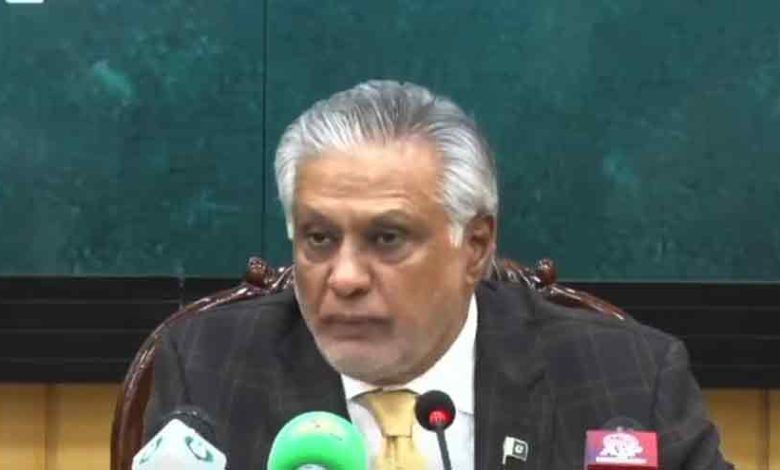Pakistan has not yet decided whether to send troops to the peace force in Gaza.

Ishaq Dar, the deputy prime minister and foreign minister, stated on Tuesday that Pakistan has not yet made up its mind to send troops to Palestine as part of a proposed peace force.
Speaking at a press conference in Islamabad, he reiterated that Pakistan’s stance on the Palestinian issue is unaltered and confirmed that the leadership would make the final decision.
Dar clarified that although the US has proposed a peace plan for Gaza, Palestinian law enforcement would primarily oversee ground operations. The plan, which is supported by President Donald Trump and is said to have been approved by Israeli Prime Minister Benjamin Netanyahu, seeks for the release of hostages and a truce. But whether Hamas accepts the conditions will determine whether it succeeds.
Peace plan for Gaza
According to Dar, the plan calls for the creation of an autonomous technocratic administration in Palestine, overseen by an oversight committee composed primarily of Palestinians. “If we had to deal with Israel, we would have done it directly,” he clarified, emphasizing that Pakistan had not done so. The United States dealt with Israel, and we dealt with the US.
He went on to claim that five nations think Hamas might agree to the plan and that their promises should be believed. During conversations with President Trump, Pakistan and seven other countries agreed to the Gaza agenda. A covert agreement was made for these nations’ foreign ministers to continue consulting with Trump’s staff.
Trump’s 20-point plan to halt the violence in Gaza is welcomed by PM Shehbaz.
According to Dar, Pakistan is steadfastly aligned with the other seven participating nations, which include Saudi Arabia, the aligned Arab Emirates, and Turkey. Together, they released a declaration endorsing the creation of a Palestinian state with its capital at Al-Quds Sharif on pre-1967 borders. The declaration also emphasized pledges to provide humanitarian help for Gaza, guarantee the return of displaced Palestinians, and stop Israel’s aspirations to seize the West Bank.
He pointed out that eight Muslim leaders met with President Trump to discuss their specific agenda, which included demands for an early end to hostilities, the delivery of aid, the relocation of displaced Gazans, and the restoration of regions that had been devastated. Dar claims that Trump requested the representatives and his team to come up with a feasible plan.
bringing up the Gaza issue before the UNGA
Prime Minister Shehbaz Sharif led Pakistan’s delegation to the United Nations General Assembly (UNGA), where he met with world leaders such as the chief adviser of Bangladesh, the president of Sri Lanka, and representatives from the IMF. In addition to discussing India’s breaches of the Indus Waters Treaty, the premier brought up the Palestine problem at the international meeting.
Dar personally participated in more than 20 bilateral meetings and nine high-level sessions, including talks with the foreign ministers of Canada and Hungary, the six-member OIC committee on Palestine, and Turkey and Syria. He affirmed that the Saudi foreign minister played a key role in the ongoing coordination between Arab and Islamic authorities regarding Gaza.
Trump recalls India losing seven jets to Pakistan and cautions Hamas about the peace proposal.
The foreign minister questioned whether opponents would rather see more civilian deaths in Gaza and maintained that criticism of the peace deal is politically driven.